What is Bitcoin in a Few Simple Words?
Bitcoin is an exciting and revolutionary digital currency that has overtaken the world.
Unlike traditional currencies, which are issued and controlled by central banks, Bitcoin operates on a decentralized network of computers.
Is there something new about it?
Well, yes, It is!
Bitcoin Explained in 5 Minutes | What Is Bitcoin ? | Introduction to Bitcoin | Simplilearn
It is a peer-to-peer currency that allows direct transactions between users.
Bitcoin has rapidly gained popularity and become a significant player in the financial world.
So, as a result, it grants some benefits and few disadvantages.
Pros of Bitcoin:
- Decentralization: Independent from governments, giving financial freedom.
- Global Transactions: Quick and low-cost cross-border payments.
- Limited Supply: Fixed 21 million coins, avoiding inflation.
- Financial Privacy: Pseudonymous transactions for privacy.
- Investment Potential: Attracts investors for significant returns.
Cons of Bitcoin:
- Price Volatility: Rapid price fluctuations pose risks.
- Security Concerns: Hacker risks lead to fund loss.
- Limited Acceptance: Not widely used for everyday transactions.
Genuinely speaking, Bitcoin has everything to become the next economic miracle.
But would we see this happen?
You’d know more at the end of the article.
Brief History of Bitcoin
Initially known to only a handful of tech enthusiasts and cryptography experts, Bitcoin gradually gained traction today and expanded its user base.
Here are a few of the most critical chapters in the history of Bitcoin.

- 1999 – Wai Dai published a concept of decentralized payments.
- 2005 – Bitgold proposal predates Bitcoin’s creation.
- 2008 – Publication of Bitcoin’s Whitepaper.
- 2009 – Bitcoin is officially launched.
- 2010 – 10,000 Bitcoins traded for 2 pizzas.
- 2011 – Bitcoin’s value equals that of the U.S. Dollar.
- 2013 – First Bitcoin bubble, with a price peak of $1,213.
- 2014 – Mt. Gox shutdown and China’s Bitcoin ban.
- 2015 – Ethereum emerges, becoming a Bitcoin competitor.
- 2017 – Bitcoin’s biggest bubble, with a peak price of $19,787.
- 2018 – Bitcoin’s price drops to a low of $3,300.
- 2020 – Bitcoin faces a 60% loss during the Coronavirus pandemic.
As media coverage and public interest soared, the value of Bitcoin skyrocketed, attracting investors and speculators alike.
So, How Does Bitcoin Look Like?
In this beginner’s guide to Bitcoin, no question is too silly!
After understanding “what is Bitcoin?”, some may wonder if it’s a physical coin. Well, it’s a serious inquiry.
A case in New York shows two men conning people out of $1.1 million.
They sell Chuck E. Cheese tokens (children’s arcade coins) with a “B” written on them as if they were Bitcoins.
But here’s the truth: Bitcoins are not physical.
Bitcoin solely exists in the online world.
However, you can keep your Bitcoins and other cryptocurrencies safe offline.
The best way is to use a hardware wallet.

These actual hardware wallets securely store Bitcoin and various other cryptocurrencies.
Once you learn how to use and protect them, they become the closest thing to a physical Bitcoin.
What Makes Bitcoin So Valuable?
Numerous factors influence Bitcoin’s value.
They are both technical and market-related.
In this Bitcoin guide, we’ll explore most of them.
Please, keep reading to know more about what makes Bitcoin so valuable.
Bitcoin is based on the blockchain
The blockchain, a distributed ledger technology, is at the heart of Bitcoin’s groundbreaking infrastructure.
Think of it as a big book where all Bitcoin transactions are written.
It’s not like traditional banking systems, where transactions are processed through a centralized authority.
The blockchain relies on a vast network of worldwide computers (nodes).
These nodes verify and confirm transactions, ensuring their accuracy and security.
The decentralized nature makes Bitcoin robust, with no single point of failure or control.
Absolute transparency of Bitcoin
Transparency is a vital feature of the Bitcoin network.
Every transaction conducted with Bitcoin is recorded on the blockchain and is accessible to anyone.
It’s like a see-through money system.
It allows everyone to explore the blockchain and examine transactions independently.
This transparency fosters trust among users, as they can independently verify the legitimacy of transactions.
Decentralization features of Bitcoin
One of Bitcoin’s significant advantages is its decentralization.
A single entity controls most traditional financial systems.
Bitcoin operates as a game played by many, with no one person or group in control.
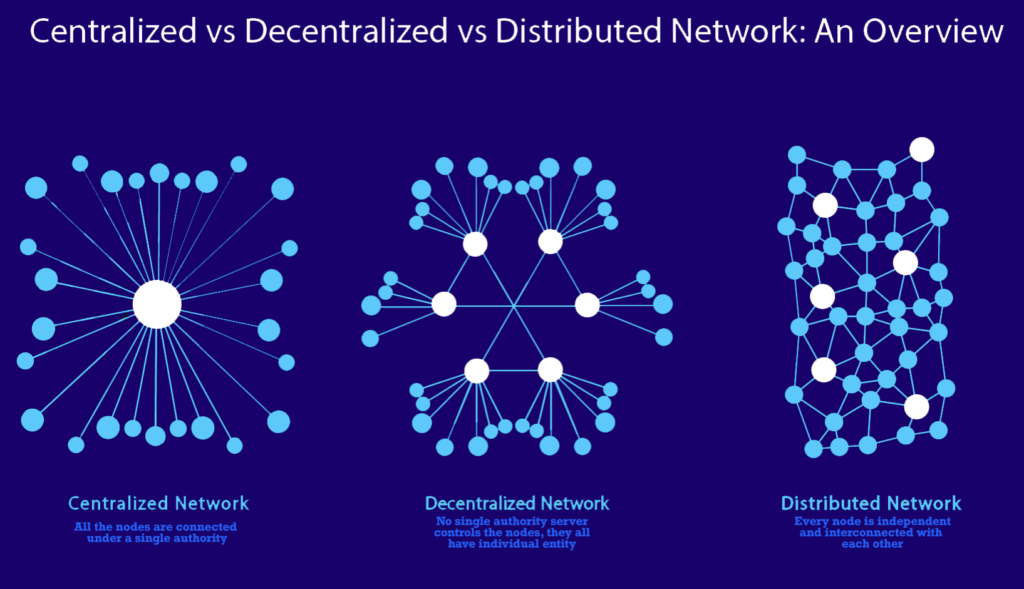
This distributed network of nodes validates and stores transactions, making Bitcoin:
- Resistant to censorship.
- Independent of government interference.
- Secured from single points of failure.
The decentralized design contributes to its strength and reliability.
Still, how can this feature benefit you?
Remember how during the great depression, U.S. President Roosevelt imposed a “bank holiday” to freeze people’s money.
Modern times saw similar incidents in Venezuela, where access to banked money was lost.
Centralized systems concentrate power.
They allow governments or banks to control your access to your assets.
Bitcoin’s decentralization ensures 100% ownership.
So you will be granted full financial autonomy and security.
Bitcoin guards your financial privacy
Financial privacy is a significant concern in the digital age.
Conventional banking systems often expose personal financial information.
They require you to show your ID, driver’s license, or passport to get any service.
In contrast, Bitcoin transactions are pseudonymous.
It means users don’t need to provide their real names.
Instead, transactions are linked to unique alphanumeric characters called “keys” or “addresses.”
Users’ identities remain anonymous while the transaction history is publicly recorded on the blockchain.
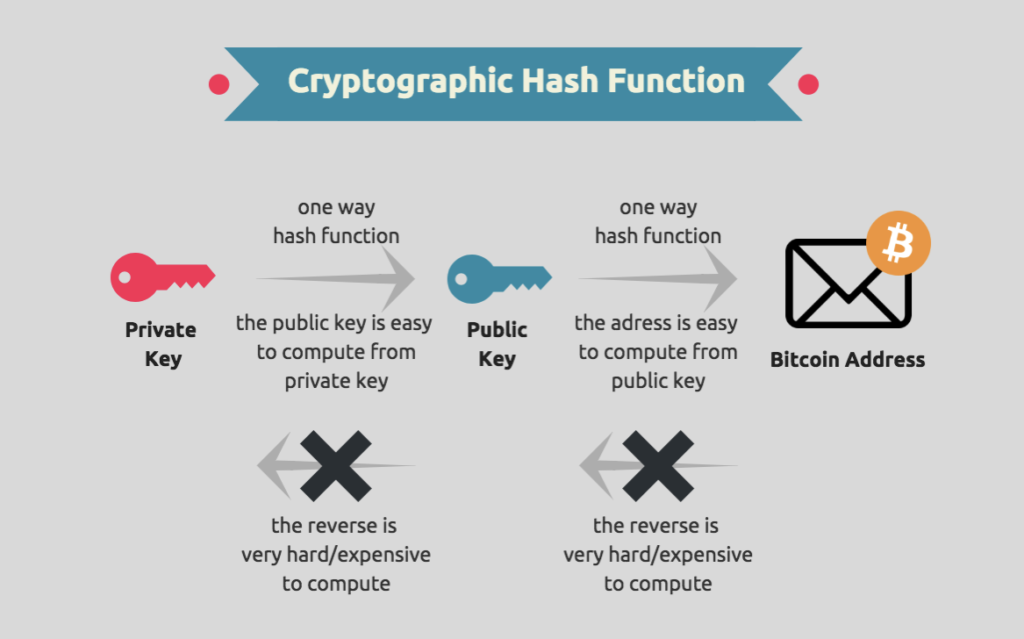
This privacy feature offers confidentiality and anonymity that traditional banking systems struggle to match.
Creating addresses and keys is easy when using a Bitcoin wallet generator.
No account setups or ID checks are required.
However, some companies can track Bitcoin’s movements on the transparent blockchain by tracing money flows. If it leads to your identity, they can link it to you.
To use Bitcoin anonymously, never connect your public key/address to anything linked to your identity.
Note: Since Bitcoin’s creation, new privacy-focused cryptocurrencies like Monero, Zcash, and Beam have emerged.
Bitcoin is comfortable to divide
One of Bitcoin’s unique advantages is its high divisibility.
Unlike traditional fiat currencies with limited decimal points.
For example, most traditional currencies divide only into two decimal points.
Yet, Bitcoin can be divided into tiny fractions called “satoshis.”
One Bitcoin consists of 100 million satoshis, allowing for microtransactions.
So, Bitcoin is suitable for both large and small purchases.
You can use Bitcoin Worldwide
Traditional cross-border transactions can be cumbersome and expensive.
They always involve multiple intermediaries and currency conversions.
With Bitcoin, there are no geographical boundaries.
It’s like a magic coin that works everywhere, enabling users to conduct international transactions quickly and at a lower cost than traditional methods.
In 2023, the pick number of daily Bitcoin transactions reached 561,448.
You can use one of 35,000+ Bitcoin ATMs worldwide to withdraw cash.
This borderless feature is especially advantageous for individuals and businesses engaged in international trade and remittances.
Bitcoin can’t be censored
One of Bitcoin’s most significant strengths is its resistance to censorship.
Unlike traditional financial systems where authorities can stop or freeze transactions, Bitcoin operates outside the control of any single entity.
It’s like having a unique tool that nobody can take away.
Users have complete control over their funds and financial decisions, free from external interference.
Despite attempts to stop it, Bitcoin remains resilient and unstoppable.
When China tried to ban the Bitcoin mining process on the government level, there remained enthusiasts who kept the mining process.
There is a limited amount of Bitcoins
Unlike traditional fiat currencies that central banks can endlessly print, Bitcoin has a fixed supply.
Only 21 million Bitcoins will ever be created, and this scarcity is programmed into the Bitcoin protocol.
Currently, there are around 150,000 miners worldwide who secure Bitcoin blockchain.
Scarcity is a significant factor contributing to Bitcoin’s value proposition, as it creates an element of rarity.
Last but not least, it ensures that Bitcoin cannot suffer from inflationary pressures.
Indefinite durability of Bitcoin
Physical cash and coins can get old and worn out.
But Bitcoin is not a physical thing.
It exists as electronic data, securely stored on the blockchain.
So, these facts ensure its indefinite durability.
Bitcoin price can be predicted
Bitcoin’s price is subject to market dynamics and various factors influencing its value.
Indeed, it is impossible to predict Bitcoin’s price with absolute certainty.
Yet, experts use market analysis, historical trends, and external factors to predict Bitcoin’s potential price movements.
Yet, as you can see below, it creates giant opportunities and leads to outstanding situations.
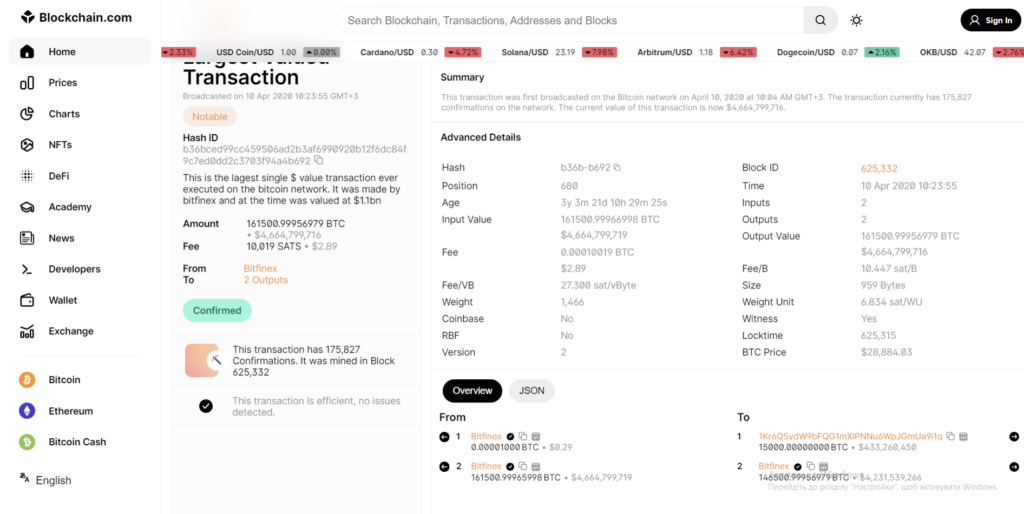
Source Blockchain.com
In 2020, someone moved $4,6+ billion worth of bitcoins for only a $2,89 fee, reaching outstanding profits by predicting a price increase.
It is impossible to create a fake Bitcoin
Counterfeiting is a concern with physical currencies.
But Bitcoin’s cryptographic protocols make it nearly impossible to create counterfeit coins.
Each Bitcoin transaction is verified and recorded on the blockchain.
This fact ensures the authenticity of each coin.
Five Pros of Bitcoin for Users
So, now, you understand what Bitcoin is.
Still, a question arises: how can it be helpful for your good?
What are the every day benefits you could get by using Bitcoins?
Let’s find out more about it together!
Keeping your finances private
In today’s digital world, financial privacy is a significant concern.
Traditional banking systems often require users to share personal information, making them vulnerable to data breaches and identity theft.
Bitcoin offers an alternative, allowing users to transact with a level of pseudonymity.
For instance, if you enjoy Bitcoin betting, you can gamble on sports without worries about your bank, spouse, or government finding out, especially if gambling is illegal where you live.
Similarly, if you prefer your hard-earned money not to be monitored by your bank or have your spending habits sold to advertising agencies, Bitcoin is the solution.
Moreover, if the government restricts cash transactions (like the U.S. possibly banning cash over $10,000), and you value financial privacy, Bitcoin is the answer.
Users ‘ identities remain concealed while the transaction history is publicly recorded on the blockchain.
So, Bitcoin provides higher privacy and security compared to traditional banking.
Fast and cheap money transfers
Conventional cross-border money transfers can be slow and expensive, involving multiple intermediaries and currency conversions.
For example, banks might charge up to 3-4% of the total transaction sum and up to 5 business days to transfer money abroad.

With Bitcoin, users can send and receive money globally quickly and easily.
Bitcoin transactions typically take minutes to be confirmed on the blockchain, regardless of the distance between sender and receiver.
Additionally, Bitcoin transaction fees are typically lower than those traditional financial institutions charge.
Trading 24/7
Unlike traditional financial markets operating during specific hours, cryptocurrency, including Bitcoin, operates 24/7.
This constant availability gives traders greater flexibility, enabling them to monitor and execute trades at any time, regardless of location or time zone.
Bitcoins cannot be confiscated
In traditional banking systems, authorities can freeze or confiscate funds if they suspect illegal activities or due to legal disputes.
With Bitcoin, as long as users maintain control of their private keys, their Bitcoins are beyond the reach of governments or third parties.
This financial autonomy empowers individuals to own and control their wealth fully.
Great for earning money
You won’t argue with the fact that crypto might bring you millions if you’d invest in the right moment.
Bitcoin has been a lucrative investment for many early adopters and savvy investors.
Over the years, the value of Bitcoin has surged exponentially, creating opportunities for substantial returns on investment.
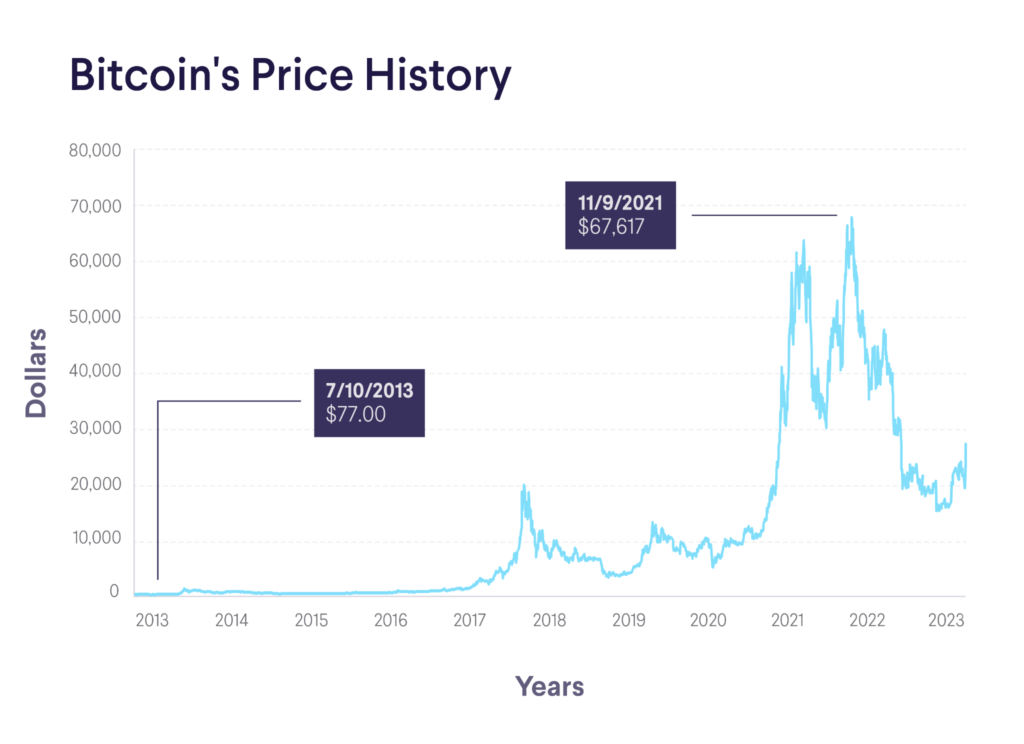
Zooming out, we observe a clear uptrend from under $0.01 to its present value.
Investing $50 in 2009 could have yielded $100 Million at Bitcoin’s peak in 2017.
Many believed the 2017 price was Bitcoin’s final peak, but similar sentiments arose in 2011 at $200 and 2013 at $1400.
Even if you never sold after buying during those peaks, you’d still be in profit at today’s prices.
The growth potential and upward price trends have attracted many people seeking to capitalize on Bitcoin’s appreciation.
Four Cons of Bitcoin for Users
Though Bitcoin is a significant financial asset, unfortunately, it’s not a miracle.
Yet, it might not be a good fit for you.
So, consider a few disadvantages of Bitcoin to be aware and take action considering both sides.
Scammers love to use Bitcoin
The pseudonymous nature of Bitcoin transactions can attract scammers and criminals seeking to exploit unsuspecting individuals.
Scams, such as phishing attacks, Ponzi schemes, and ransomware demands, are prevalent in cryptocurrency.
Users must exercise caution, be vigilant, and employ best practices to protect themselves from potential scams.
Because, unlike with fiat money, it might be hard or even impossible to get your Bitcoins back.
So, you need to be very cautious.
High price volatility
Bitcoin’s price is notorious for its wild fluctuations, often experiencing significant swings within short periods.
While price volatility can present profit opportunities, it also carries inherent risks, as the value of Bitcoin can rapidly decline.

Investors must know this volatility and consider their risk tolerance before investing in Bitcoin.
This fact creates a primary rule that all investors need to follow:
Avoid spending more than you are comfortable to lose.
Not friendly to beginners
For individuals new to the world of cryptocurrencies, Bitcoin can be intimidating.
The technical aspects, such as setting up wallets, understanding private keys, and navigating exchanges, can be challenging for beginners.
Also, some issues are exclusive to cryptocurrencies only. E.g., sending your tokens to the wrong address is more likely to be lost forever.
As cryptocurrency evolves, user-friendly platforms and educational resources become more accessible.
So, entering the crypto world becomes easier for newcomers. But, still, there is a lot of work ahead.
Limited spending ability
Although Bitcoin’s adoption is growing steadily, it must still be more widely accepted than traditional fiat currencies.
Consequently, finding merchants and businesses accepting Bitcoin for goods and services can take time and effort.
While the number of Bitcoin-friendly establishments is increasing, users may find their spending options somewhat limited compared to traditional payment methods.
Yet, more and more new merchants accept Bitcoins worldwide every year.
What Exactly is Bitcoin: Asset, Currency, or Digital Gold?
Now you are more likely to wonder…
What is Bitcoin in the first place?
Is it some new type of financial asset, currency, or what?
Maybe it’s some fancy type of digital stock?
Well, the answer is a little bit harder.
Keep reading to know more.
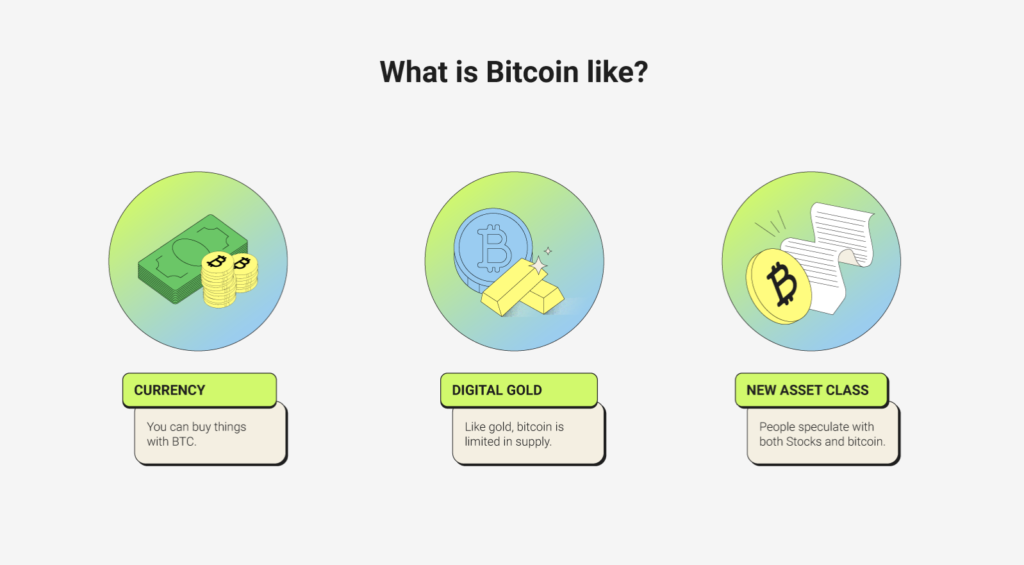
Bitcoin as a currency
From its inception, Bitcoin was intended to serve as a digital currency.
As a fiat, it helps individuals to conduct peer-to-peer transactions without intermediaries.
As such, Bitcoin possesses many currency characteristics: it can be used for:
- Purchasing goods and services.
- Transferred between parties.
- Acts as a medium of exchange.
Additionally, its borderless nature makes it a viable option for international payments, offering faster and cheaper alternatives to traditional remittance services.
Also, you can sell and buy things and receive a salary in BTC.
Bitcoin as an asset
Generally speaking, Bitcoin can be viewed as an asset.
As Bitcoin gained popularity, its value began to appreciate dramatically.
Bitcoin attracts investors and speculators seeking to capitalize on its price volatility.
Bitcoin’s scarcity and growing demand contributed to its status as a speculative asset.
Many view Bitcoin as a digital store of value akin to precious metals like gold.
Investors often treat Bitcoin as a hedge against economic uncertainties and inflation, much like traditional asset classes.
Bitcoin as digital gold
The moniker “digital gold” aptly describes Bitcoin’s store-of-value attributes.
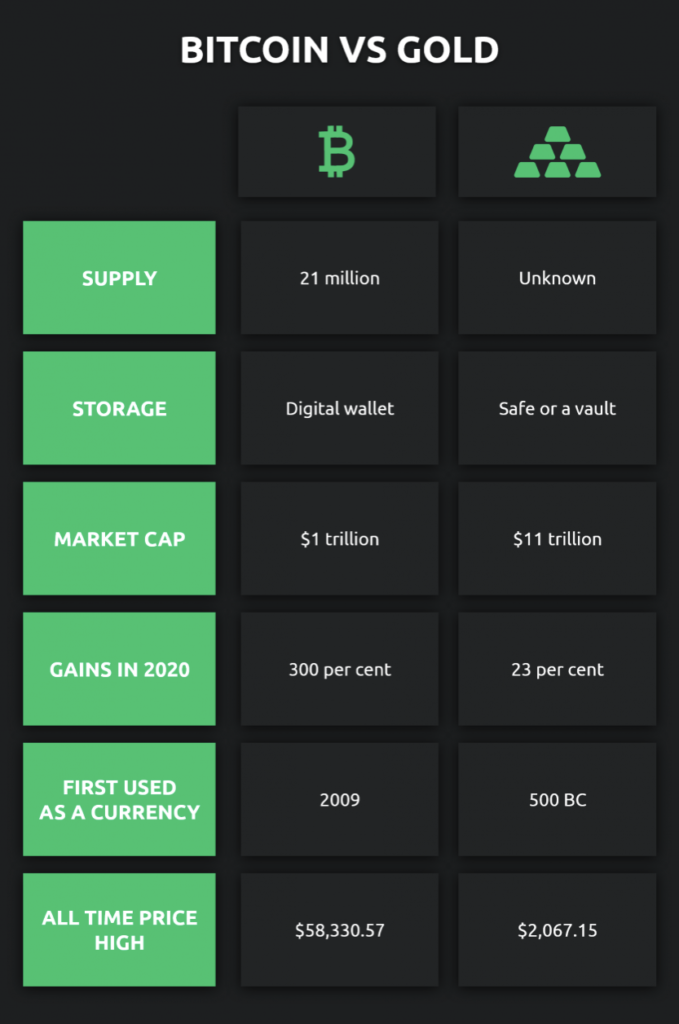
Like gold, Bitcoin has a limited supply of 21 million, making it a deflationary asset.
Furthermore, Bitcoin’s decentralized nature and resistance to censorship parallel gold’s history as a store of wealth and protection against government interventions.
The comparison to gold has solidified Bitcoin’s role as a safe-haven asset in economic turbulence.
Conclusion: Bitcoin’s Value
In conclusion, Bitcoin is a versatile financial instrument, blending elements of a currency, an asset, and digital gold.
The limited supply of Bitcoin and its increasing global adoption has contributed to its appreciation over time.
Bitcoin’s disruptive potential continues to challenge traditional financial systems, heralding a new era of finance based on decentralization and empowerment.
Why Bitcoin Prices are so Volatile?
The volatility of Bitcoin’s price is a topic of great interest and debate in the cryptocurrency community.
While no single factor can entirely explain Bitcoin’s price fluctuations, several key aspects contribute to its volatility:
- Supply and Demand Dynamics: The limited supply of 21 million Bitcoins creates scarcity, influencing demand and price. Demand surges as more investors and users enter the market, increasing price appreciation.
- Market Sentiment: Bitcoin’s price is significantly influenced by market sentiment. Positive news and developments can cause rapid price surges, while negative information or regulatory concerns can lead to sharp price drops.
- Lack of Regulation: The cryptocurrency market is relatively young and less regulated than traditional financial markets. E.g., crypto was mentioned for the first time in the US legislation only in 2021. As a result, it is more susceptible to market manipulation and speculative trading practices, leading to higher price volatility.
- Market Liquidity: Bitcoin’s liquidity refers to the ease of buying or selling the cryptocurrency without significantly affecting its price. Lower liquidity can lead to price swings, as large buy or sell orders can cause imbalances in the market.
- Global Events: Geopolitical events, macroeconomic trends, and government policies can influence Bitcoin’s price. Economic crises, geopolitical tensions, or regulatory changes can trigger significant price movements.
- Speculative Nature: Many investors view Bitcoin as a speculative asset, which can lead to heightened price volatility. Some celebrities, e.g., Elon Musk, promote crypto for their good and speculates on the market.
- Market Manipulation: The decentralized and unregulated nature of the cryptocurrency market can attract malicious actors seeking to manipulate prices for their gain. Pump-and-dump schemes and other forms of market manipulation can create artificial price movements.
How to Invest in Bitcoin?
Investing in Bitcoin can be rewarding but requires careful consideration and prudence.
Here are steps to invest in Bitcoin:
- Educate Yourself: Before investing, thoroughly research Bitcoin, blockchain technology, and the cryptocurrency market. Understand the risks, benefits, and potential investment strategies.
- Choose a Secure Wallet: Select a reliable Bitcoin wallet to store your coins. Wallet options include hardware wallets, software wallets, and mobile wallets. Ensure that you keep your private keys secure, as they provide access to your funds.
- Select a Reputable Exchange: Choose a cryptocurrency exchange that is reputable, secure, and user-friendly. Verify the exchange’s security measures and consider factors like trading fees, liquidity, and customer support.
- Create an Account: Sign up and create an account on the selected exchange. Complete the required verification processes, adhering to the exchange’s Know Your Customer (KYC) and Anti-Money Laundering (AML) policies.
- Deposit Funds: Fund your exchange account with fiat currency or other cryptocurrencies, depending on the exchange’s supported trading pairs.
- Diversify Your Investment: Avoid putting all your funds into Bitcoin. Diversification reduces risk by spreading investments across different assets.
- Monitor the Market: Monitor market trends and price movements closely. Analyze market data and use technical analysis tools to inform investment decisions.
- Practice Risk Management: Set clear investment goals, and only invest what you can afford to lose. Bitcoin’s price volatility means that investments can fluctuate significantly in value.
- Stay Updated: Stay informed about developments in the cryptocurrency space. News and regulatory changes can impact the market, influencing investment decisions.
- Be Patient: Bitcoin’s value can experience significant fluctuations in the short term. Adopt a long-term perspective, focusing on the underlying technology and its growth potential.
Bitcoin-Related Risks: Are They Valid?
While Bitcoin offers numerous advantages, it also faces criticisms and concerns.
Also, a few celebrities and influencers are shouting out loud against BTC and crypto.
So, let’s look at some valid risks and some of the most over-expressed complaints associated with Bitcoin.
Helps to prosper from illegal activity
Yes, unfortunately, it’s true.
Bitcoin’s pseudonymous nature can attract illicit activities, including:
- Money laundering.
- Tax evasion.
- illegal transactions on the dark web.
In 2018, Forbes reported about $72,000,000 involved in various unlawful activities.
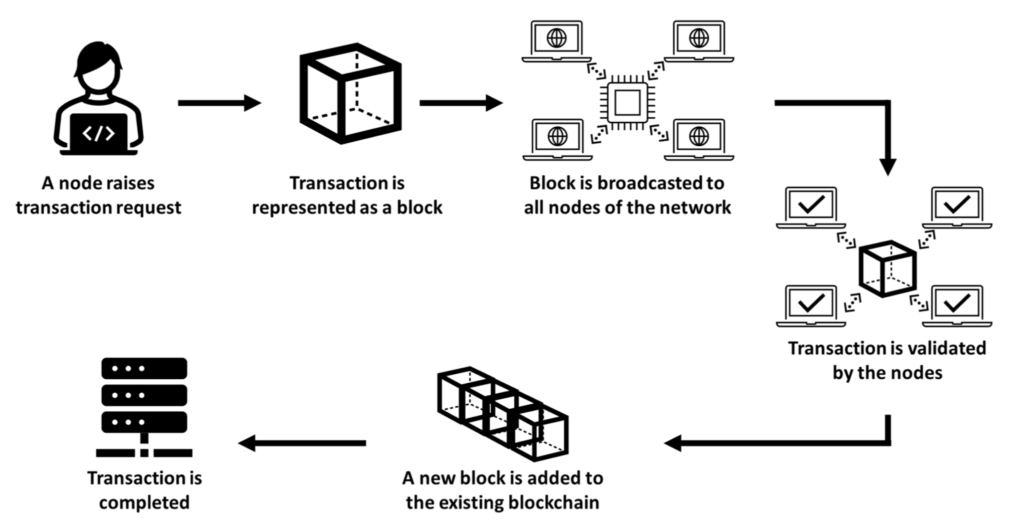
Yet, the article also reports that most of these activities can be traced by government organs because those users linked their identity to their Bitcoin addresses at some point.
Also, these figures are almost nothing compared to the $100 billion used for drugs purchased annually in cash.
However, it is essential to recognize that most Bitcoin users engage in legitimate and legal activities.
Mining Bitcoins is a power-consuming process
The process of mining, essential for confirming transactions and securing the network, consumes substantial energy.
Critics argue that Bitcoin’s energy consumption contributes to environmental degradation.
An article by BBC compared the amount of energy used for BTC mining with the annual consumption of Switzerland.
However, research and efforts are underway to develop more energy-efficient mining methods.
Also, according to the University of Pittsburgh researchers banks consume 3x more energy than all Bitcoin miners worldwide.
So, we should choose a tinier evil among the two.
Prices for Bitcoin are too volatile
Bitcoin’s price volatility is well-documented and is often cited as a reason to approach cryptocurrency investments cautiously.
Yet, some stocks regularly face ups and downs by more than 1,000% and remain legit for most people.
Basically, it’s just the nature of most stocks. That’s how they work.
The cryptocurrency market is relatively young and less liquid than traditional financial markets.
Naturally, these facts contribute to price swings.
Bitcoin is nothing like a bubble
Some critics liken Bitcoin to a speculative bubble, comparing it to previous financial bubbles that ended in crashes.
Interestingly, The Bitcoin Bubble has already faced six “pops.” Here is their list:
- 2011 – From $31 to $2
- 2012 – From $266 to $100
- 2013 – From $1,242 to $230
- 2015 – From $760 to $200
- 2017 – From $19,400 to $3,300
- 2019 – From $14,400 to $3,800
However, the underlying technology, growing adoption, and institutional interest suggest that Bitcoin is more than a passing fad.
We can regularly see how after another crash, BTC prices keep getting bigger.
Isn’t this great proof of trustworthiness?
Technology Behind Bitcoin Explained: How Blockchain Works?
Blockchain is a revolutionary decentralized ledger system.
It is the technology underpinning Bitcoin’s success.
Blockchain In 7 Minutes | What Is Blockchain | Blockchain Explained|How Blockchain Works|Simplilearn
But how exactly does the whole system work?
Here’s a simplified explanation of how blockchain works:
- Decentralized Network: Instead of relying on a central authority like a bank or government, the blockchain operates on a vast network of computers (nodes) spread worldwide. These nodes work collaboratively to validate, record, and store transactions.
- Transaction Verification: When a user initiates a Bitcoin transaction, it is broadcast to the network. Miners, particular nodes responsible for verifying transactions, compete to solve complex mathematical puzzles. The first miner to solve the puzzle confirms the transaction and adds it to a block.
- Building Blocks: Transactions are grouped into blocks, forming a chain. Each block contains a unique code called a “hash” that connects it to the previous block, creating an unbroken sequence of blocks.
- Consensus Mechanism: The decentralized nature of blockchain requires consensus among nodes to ensure the accuracy and security of transactions. Nodes must agree on the validity of transactions before they are added to the blockchain.
- Immutable Record: Once a block is added to the blockchain, it cannot be altered or deleted. This immutability ensures the integrity and transparency of the entire transaction history.
- Decentralized Security: The blockchain’s distributed nature makes it incredibly secure. An attacker must control most of the network’s computing power to compromise the blockchain, making it a highly improbable and costly endeavor.
Bitcoin Owners: Numbers and Facts
As of 2023, the number of Bitcoin owners has steadily grown.
It is estimated that 67 million active Bitcoin addresses are operating only in the USA.
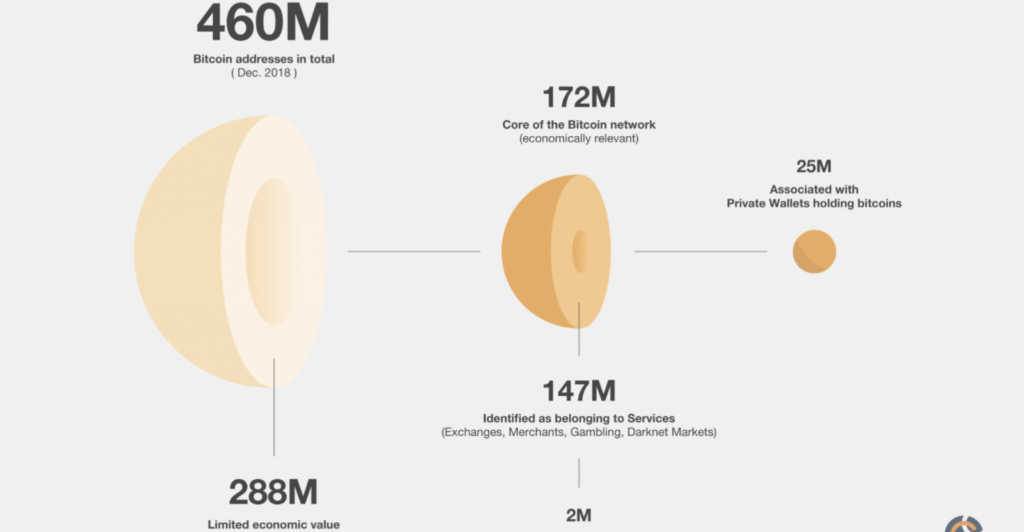
A recent survey revealed intriguing findings when considering age demographics.
Interestingly, 68.8% of individuals aged 55 to 64 have no intention of purchasing BTC.
This percentage increases among older age groups, with 74% of individuals over 65 refusing to invest in Bitcoin.
In contrast, younger generations, particularly those between 24 and 35, not only plan on buying Bitcoin, but 8.8% already own some.
Further analysis of the demographics shows that 11.6% of young males have plans to buy BTC, while 8.2% of females share the same intention.
These statistics demonstrate that most people perceive buying Bitcoin as challenging and risky.
However, the reality is quite different, especially nowadays. It’s pretty easy to become a BTC owner.
The leading Bitcoin exchanges offer high security, liquidity, and low fees worldwide.
Just a few clicks and boom! It’s done.
Yes, it’s just that easy.
Where to Spend Your Bitcoins?
Bitcoin is a spendable currency, and there are numerous reputable establishments where you can use it for purchases.
From everyday items and groceries to sports betting and online casinos, Bitcoin has a growing range of applications.
Nonetheless, it is essential to note that regular use of Bitcoin for everyday purchases may require a debit card, and certain expenses like taxes and utilities cannot be directly paid with Bitcoin.
Also, remember that you can’t pay your taxes directly with Bitcoin.
While Bitcoin is not yet the currency of the future, it continues to gain traction in various industries.
Closing Thoughts
Bitcoin’s journey from obscurity to mainstream recognition has been remarkable.
As a transformative digital currency, it continues to disrupt traditional financial systems and challenge the status quo.
While Bitcoin offers exciting opportunities and advantages, it also comes with risks and uncertainties.
As with any investment, careful research, risk assessment, and responsible decision-making are crucial.
Whether Bitcoin will become a dominant global currency, a store of value akin to gold, or a groundbreaking technology platform, its impact on the world of finance is undeniable.
As the cryptocurrency space evolves, it will be fascinating to witness how Bitcoin continues to shape the financial landscape in the years to come.